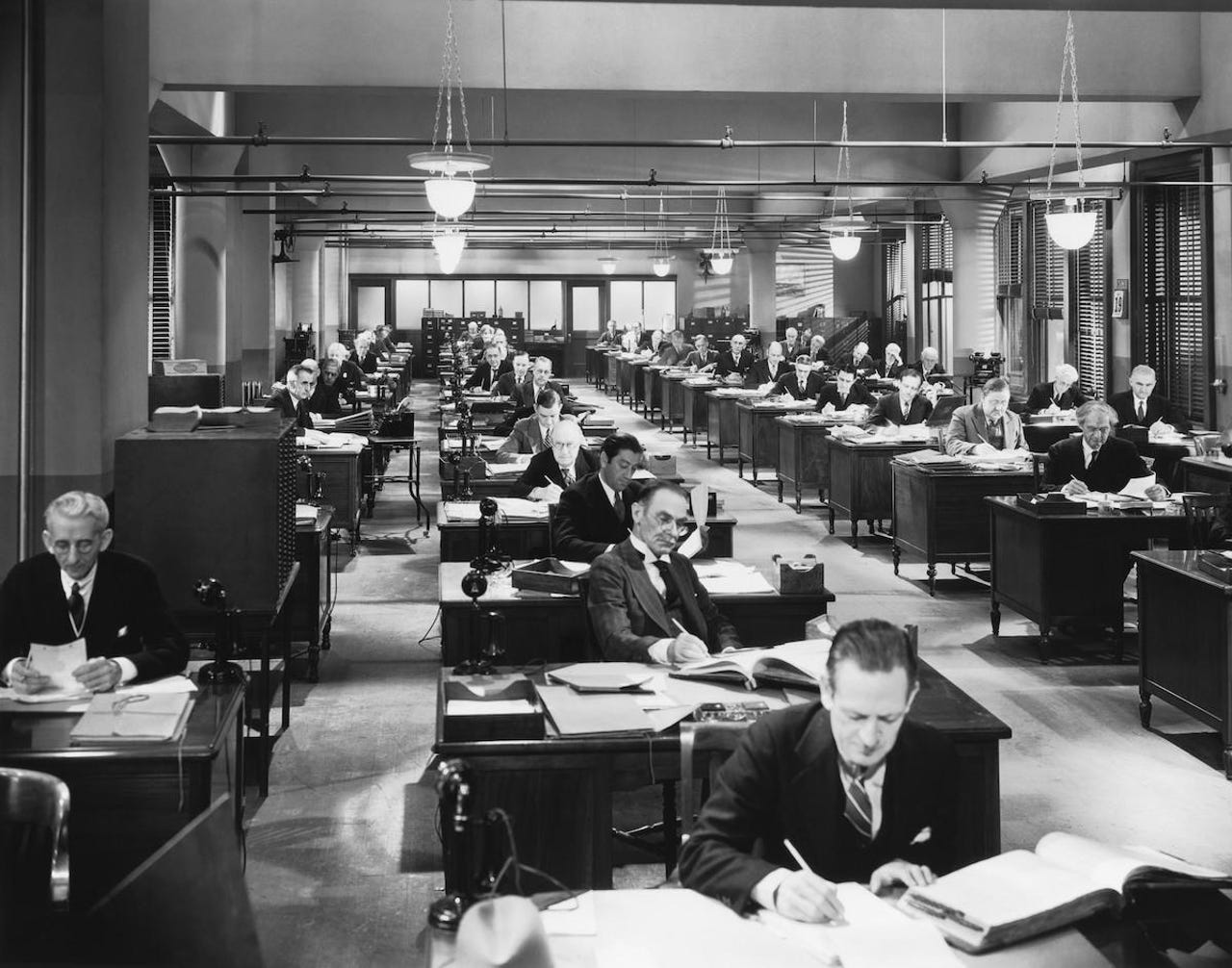Corporate offices need to change in one major way says ServiceNow CEO


In the age of hybrid work that's upon us, companies need to dramatically rethink how they approach their office space. As ServiceNow CEO Bill McDermott told a group of analysts and reporters during the company's Knowledge 2021 event, "Nobody wants to play office anymore."
For as long as they've existed, corporate office buildings have been places for workers to perform their daily tasks and for managers to ensure those tasks were completed. Those two fundamental purposes have held true whether the facility is a small suburban office or a massive corporate campus, whether the building is full of single offices or has an open floor plan, or whether the office is full of engineers, accountants, graphic design or all of the above. Yet as Bob Dylan immortalized in song, "the times they are a-changin'." And, it's about time.
SEE: Working from home: The future of business is remote (ZDNet/TechRepublic special feature) | Working from home: How to get remote right (free PDF) (TechRepublic)
Digital transformation meets Covid-19
Thanks to cloud services, online collaboration tools, the consumerization of IT and a host of other digital transformation technologies, companies no longer need to house workers in a central location to perform essential tasks. The shift to nearly 100% remote work brought about by the Covid-19 pandemic, showed this to be true, especially for knowledge workers.
And, every corporate executive that I've spoken with expects hybrid and remote work to be part of our new normal. For example, when asked if their company would continue to offer employees the ability to work remotely after the pandemic, 100% of TechRepublic's CIO Jury said, "Yes."
So, the office's first purpose as I described it above, to provide a physical place for tasks to be accomplished, is no longer relevant.
What about the second purpose, allowing managers to ensure workers complete their tasks? Again, technology has solved for this. From software development to PR campaign launches, today's project management tools, office productivity apps, and enterprise software give managers and business leaders more insights into employee productivity than ever before.
Research from Salesforce shows that the majority of remote workers are actually more productive and communicative. Likewise, a March 2021 report from the Prodoscore Research Council (PRC) found that employee productivity actually increased in 2020 even as significantly more people worked from home.
Thus, we can judge the office building's second traditional purpose mute as well.
SEE: The new SMB stack (ZDNet/TechRepublic special feature) | Download the free PDF version (TechRepublic)
Reshaping our offices around collaboration
Which begs the question, will physical offices exist in the future? The answer is "yes" at least for the foreseeable future. A survey conducted by Zoom and Survey Monkey in February found that 65% of remote workers would prefer to split their time between working from home and going into an office.
Our thinking about the office's function however, needs to dramatically change.
During his remarks, McDermott noted that by 2024, 75% of the workforce will be from the millennial generation or younger, these people want to work "in a way that makes them most productive" and "want the flexibility to have a great experience."
"I think about office buildings like a computer or a smartphone," McDermott added. "It's a tool. And if that tool can bring you together with your colleagues and ideate, collaborate, innovate...fantastic. But they don't want to waste their time being stuck in the bullpen punching a time card looking busy."
McDermott's sentiments are supported by multiple studies conducted during the pandemic.
A March 2021 survey by Morning Consult and Verizon showed 7 in 10 Americans would like to work remotely at least 1-2 days per week a year from now. Research released by Salesforce in May found that 59% of respondents believed that hybrid work would "improve their psychological wellbeing" and 54% believed it would "improve their physical wellbeing." A January survey from LiveCareer found that nearly one third (29%) of employees would quit if they were were no longer allowed to work remotely.
McDermott describes the danger for companies that fail to embrace a flexible, hybrid model of work as two fold.
First, they risk harming their customer experience.
As McDermott put it, companies can't have a Michelin 3-star customer experience without first having a Michelin 3-star employee experience.
Second, they risk losing or failing to hire top talent.
"If you want to attract the very best talent, you're going to have to have flexibility built in to the way you manage these companies," McDermott said. "We want to attract a whole new generation into the information technology industry and particular ServiceNow, and not every one of them is going to be able to move to Hyderabad or San Diego or Santa Clara. They could be in Chicago. They could be in Atlanta. They could be in Miami. They could be in Houston. They could be in Austin and many other places around the world."
ZDNET'S MONDAY MORNING OPENER
The Monday Morning Opener is our opening salvo for the week in tech. Since we run a global site, this editorial publishes on Monday at 8:00am AEST in Sydney, Australia, which is 6:00pm Eastern Time on Sunday in the US. It is written by a member of ZDNet's global editorial board, which is comprised of our lead editors across Asia, Australia, Europe, and North America.
PREVIOUSLY ON MONDAY MORNING OPENER:
- Bootstrapping and microservices: How Blavity scaled and now mentors other Black-led startups
- Ransomware just got very real. And it's likely to get worse
- From Lenovo to Apple, laptops in 2021 need USB-C ports on both sides
- Stop using your work laptop or phone for personal stuff, because I know you are
- Can OnePlus be more than a challenger brand?
- Ransomware: The internet's biggest security crisis is getting worse. We need a way out
- Technology could make fighting COVID less restrictive but privacy will take a hit
- Don't let a bad tech stack hurt employee retention, use these tips to improve worker IT satisfaction
- Education's new normal will be hybrid, more virtual
- Welcome to the era of the mega-hack